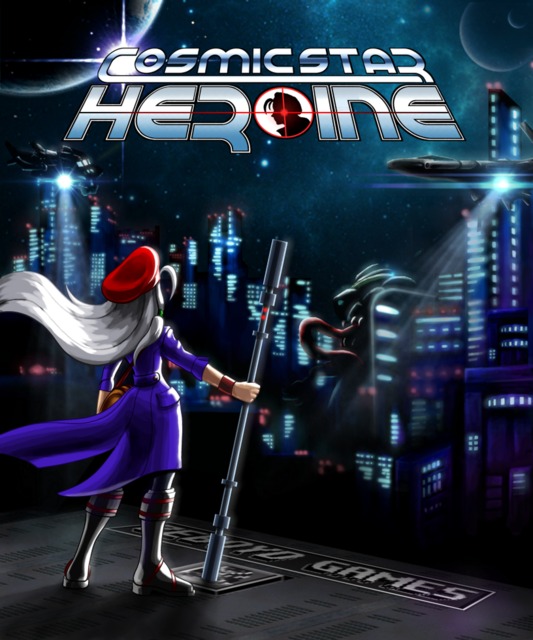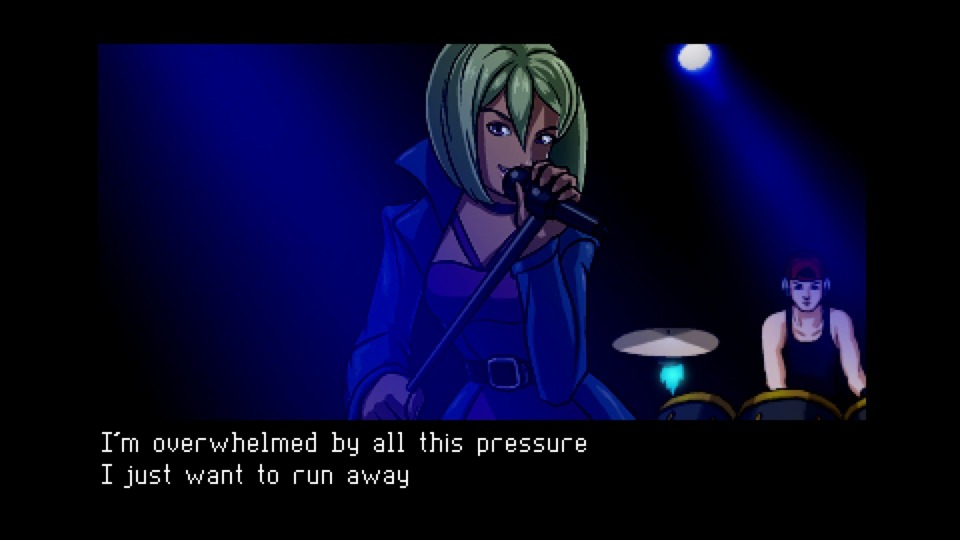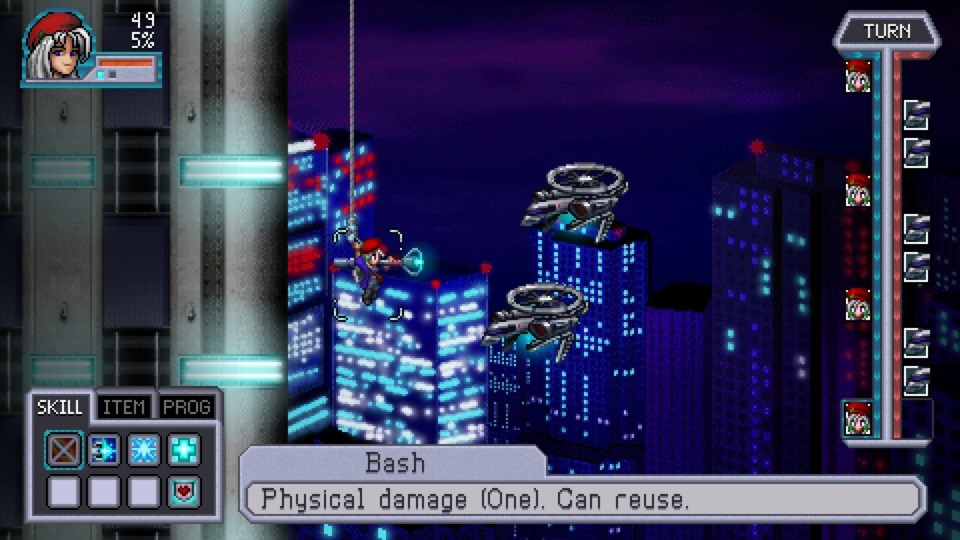Indie Game of the Week 32: Cosmic Star Heroine
By Mento 1 Comments

It was nice to wander back into Zeboyd's orbit again. The 16-bit JRPG throwback developer has been quiet since their last Penny Arcade licensed game released in 2013, and has evidently spent a lot of time and energy in that interim producing 2017's Cosmic Star Heroine: a sci-fi RPG inspired in parts by Chrono Trigger and Phantasy Star, as well as a host of other influences. We're still deep in the 16-bit aesthetic Zeboyd calls home, but the game makes a lot of bold stylistic choices for set-pieces and cutscenes that are a little more extravagant than you'd normally find in a SNES or Mega Drive title. The music's fantastic also: composed by HyperDuck SoundWorks, the same group behind Dust: An Elysian Tail's soundtrack, it perfectly nails the sci-fi aesthetic of the game with tracks that alternatively feel lifted from the 90s RPGs Cosmic Star Heroine venerates and the jazz/rock synth stylings common to cyberpunk fiction - one character even sings in a combination of Japanese and English during a musical performance, before leaping off the stage to fend off some cybernetic riot cops raiding her nightclub.
Cosmic Star Heroine concerns Alyssa L'Salle, an altruistic agent of the galactic government's covert "Agency of Peace & Intelligence" who finds herself having a crisis of conscience that motivates her to travel from planet to planet to put an end to a sinister conspiracy. The game's somewhat paper-thin story moves at a clip; there are but a handful of moments to breathe and deliver exposition and levity as you're getting batted around from one cutscene and dungeon instance to the next, trucking through dangerous areas in a mostly linear fashion until the story kicks in again. There's a definite efficiency to what Cosmic Star Heroine is doing, not unlike previous games from Zeboyd (or the story-heavy JRPGs it cribs from, above), and while a fully linear narrative might not be what everyone wants from this genre it at least wisely cuts down on the sections of those games that feel a little more aimless and bloated.

This economical approach also extends to the game's combat and character progression, in true Zeboyd fashion. Every encounter is carefully considered, with very few battles that don't involve some manner of new mechanic or enemy tactic to overcome. Your characters are constantly learning new abilities and finding new equipment and items - which are not consumed on use, but can still only be employed once per battle - and each acquisition changes the nature of the battles to come. A piece of equipment that boosts the damage of Alyssa's water-element spells, for instance, will have the player relying on those abilities more frequently. Even more impressive is how the equipment the player leaves behind for new additions, besides new weapons which have steady damage output increases, will often become useful again later. That aforementioned elemental boost might be less vital in a region where all the enemies are weak to other elements and the heroine has better gear to equip, but once she finds herself fighting water-weak enemies again it'll be back in vogue. It's a battle system that places a lot of value on preparation and tactical opportunities such as exploiting elemental weaknesses, status effects, delaying turns to boost subsequent attacks, buffing a character who has the right elemental coverage, using debuffs early on if their effects last the whole battle, choosing how to spend a "desperation" turn when an ally is in negative health and can either attack one last time before collapsing or heal themselves at a disadvantage, and a system where each character reaches a "hyper" state every so many turns (dependent on the character) where their damage output is that much greater - the idea being that the player prepares for this hyper state ahead of time, perhaps by applying a one-off buff the turn before to enhance the damage output even further.
It's the sort of system that is greatly enhanced by a higher difficulty setting, as it forces the player to consider every move that much more carefully. Generally speaking, I'm all for lowering difficulty in RPGs for the sake of blowing through all those uninteresting random encounters that much faster; here, frequently dancing on the razor's edge feels a little more integral to the overall experience. This elaborate and tactical turn-based combat system has always been the secret true strength to Zeboyd's RPGs, and it's heartening to see it continue to improve with each subsequent game.

Of course, there's often a reason RPGs are longer than they perhaps need to be to tell their story in a hurry. The time spent developing these characters and establishing their personalities and motivations beyond a couple lines of "sure, whatever, I'm in" dialogue, or side-quests that expand the world and push various smaller and more personal sub-plots forward; these are in short supply in Cosmic Star Heroine, left on the cutting room floor along with the more superfluous RPG frills. All the same, I think the biggest criticism people have of JRPGs is that they can be a little too long for their own good, especially classic ones everyone says are worth revisiting that lack the depth and hooks of modern games that can hold one's interest for so many hours. Zeboyd is a tonic for a modern RPG-playing audience who wish they could've been there for that golden era and find it difficult to return. Cosmic Star Heroine, like all of Zeboyd's games, has a laser focus when it comes to its RPG progression and storytelling - for better and for worse.
Rating: 4 out of 5 (so far - currently on chapter 5 as of writing).
| < Back to 31: Jotun | > Forward to 33: Trine 2 |
